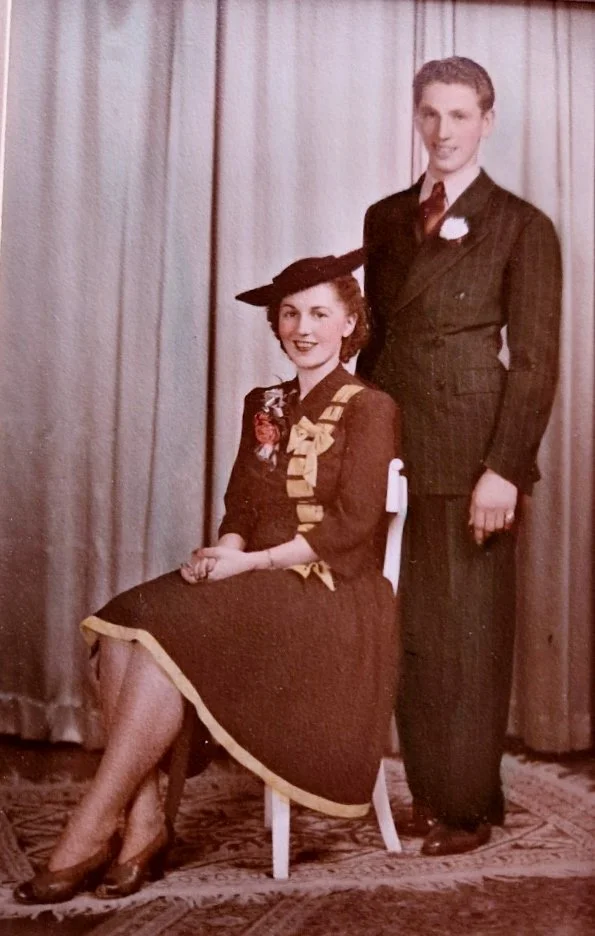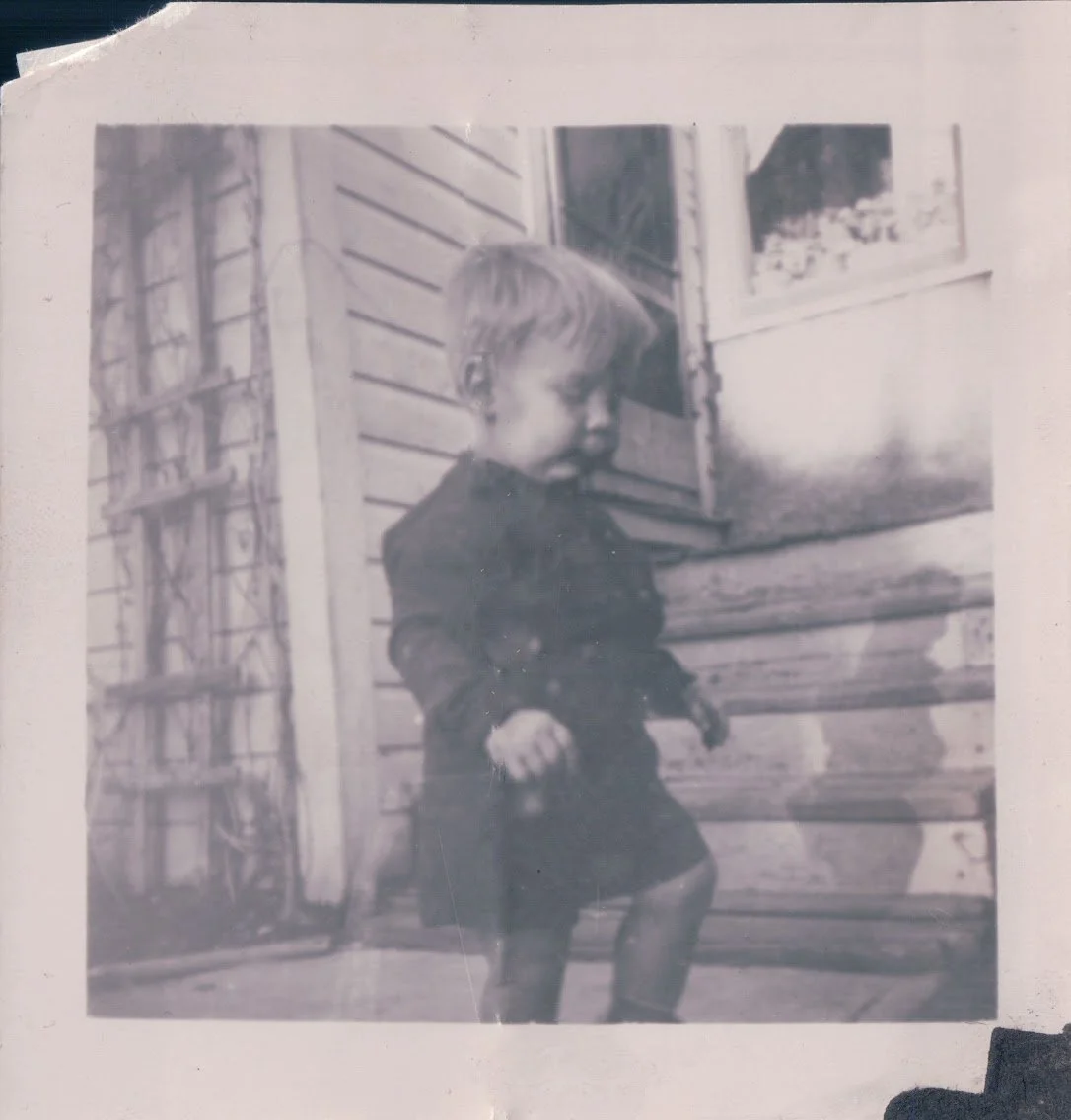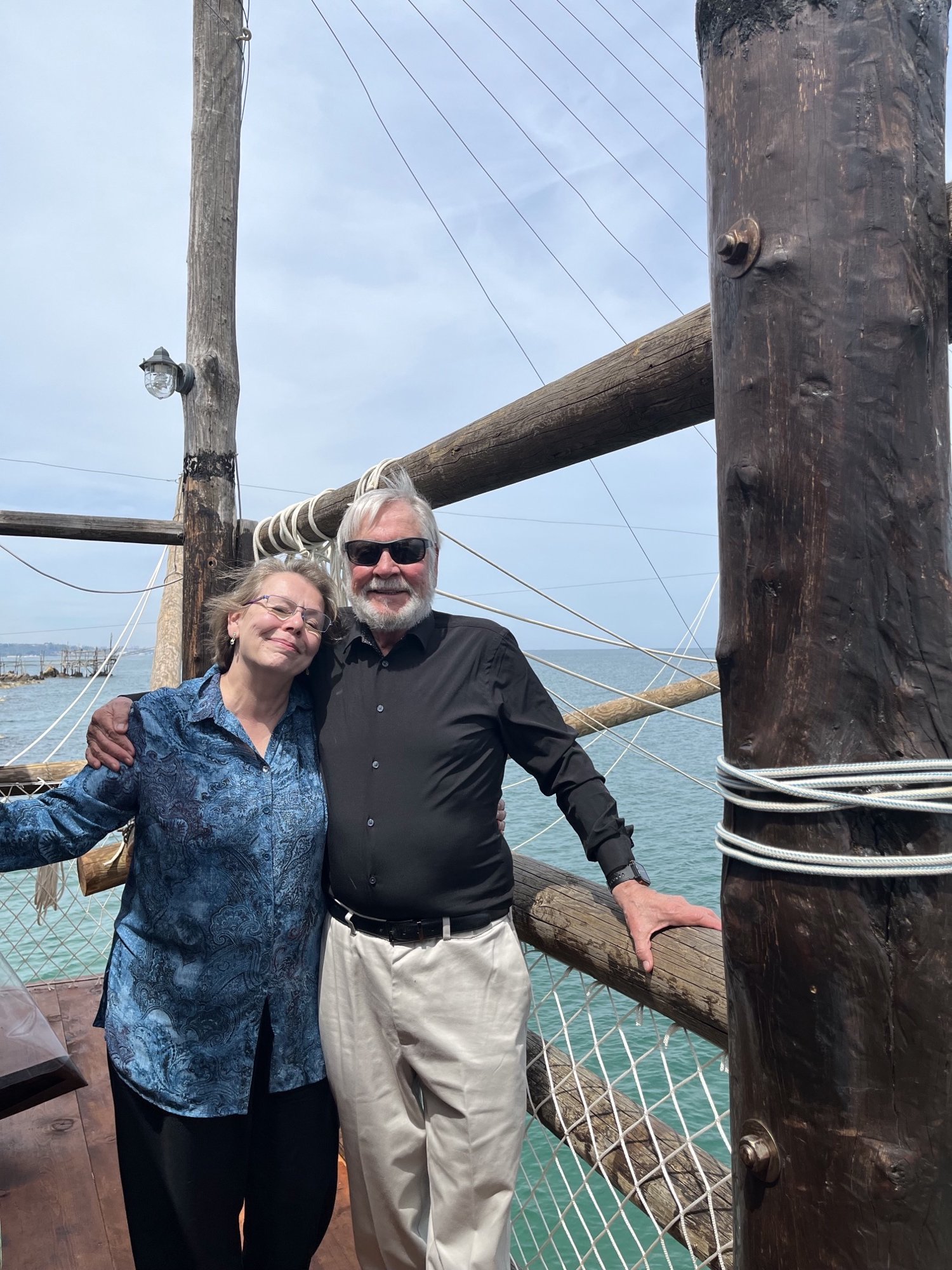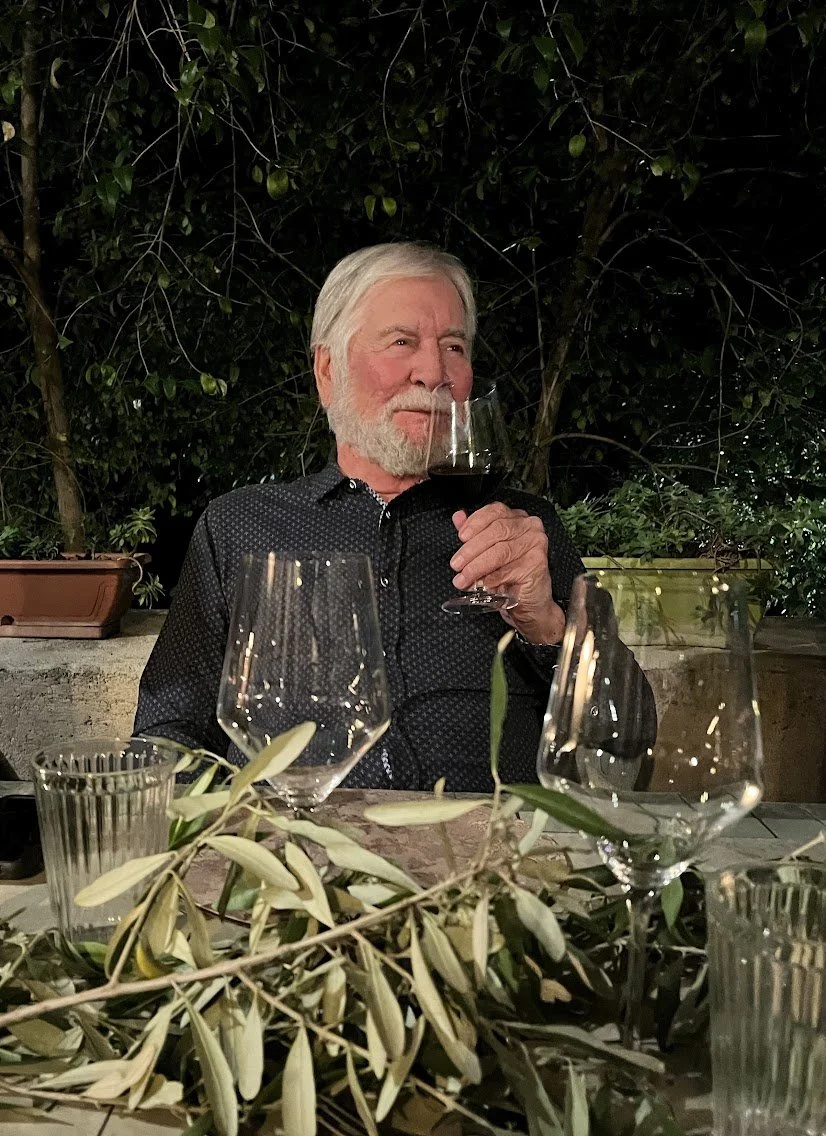A Chance to Say Goodbye to the Father He Never Knew
Marge Mario and Josh Larter in 1941 or 1942. Josh, 20 or 21 at the time, shipped out to fight in Italy on March 2,1942.. His son Wayne was born six weeks later.
1940. Blonde, handsome Josh Larter meets Marge Mario, a pretty girl with big brown eyes, at the Trianon Ballroom in Regina. They both love to dance, make friends easily, skate, and play multiple sports. Neither finished high school, instead taking jobs to help their large families make it through the Depression. They’re smart, practical, kind-hearted. He can fix anything mechanical. She can sew knock-offs of designer clothes in a matter of hours.
They fall in love and marry in 1941. On March 5, 1942, war raging, he enlists in the Canadian Army. On April 15th, their son Wayne is born.
Josh’s unit is sent to Sicily in August,1943. Farley Mowat’s And No Birds Sang gives a clear, excruciating account of the chaos and carnage of the Sicilian campaign. In particular, he recounts the horrific week when the Canadians held an impossible line against the Germans. Although Josh’s job is behind the front, to keep all the equipment working, he’s in constant danger. On December 28th, in Ortona, he is strafed by German aircraft, tearing apart his left side. By the 30th, age 22, he is dead.
Marge is a widow at 23; Wayne is 20 months old.
Wayne (Larter) Mason in 1943 shortly after his father was killed in the Battle of Ortona.
About 80 years later, my friend Jane is raving about her 2019 Italian trip to Amazing Abruzzo with a group of friends – the “Bellas” – who’d had an enchanting experience. Then she said they’d visited the Canadian cemetery at Moro, outside of Ortona. My antennae started to wave furiously. For years, I had wanted to take my 82-year-old brother Wayne to visit the grave of the father he never knew, who’d been killed during the Battle of Ortona. And here it was. A wonderful opportunity, with Italian guides, to close this circle.
Most Canadians draw a blank when you mention Ortona and the Italian campaign. But in the second half of 1943, 92,000 Canadian troops fought the Nazis there, almost a year before the Allies’ landing at D-Day.
The Canadians pushed northwards over difficult, mountainous terrain, against entrenched Germans who fought fiercely. On September 8th knowing the war was lost, Italy capitulated. It was still brutal. Every step of the way, with the Canadians often at the forefront, the retreating Germans rained hell on them, including on Sergeant Josh Larter from Saskatchewan.
After her husband’s death, the Larters closed ranks around Marge. They wanted her to find another good man, and a father for her little boy. Eventually Ed Mason, an RCAF veteran, came to stay at the Larters’ and fell in love with the widow and the little boy with green eyes. They were married in September, 1945. They had a son, Steve, and a daughter, me. Wayne was and is our brother, no “half”. Cont’d on page 2
Ed was Wayne’s Dad, but Josh was his father. Amazing Abruzzo gave him an opportunity to visit his father’s grave and pay his respects.
We were met at the Rome airport on Saturday, May 4th, by Filippo, who drove us and two other Canadians through the gorgeous vistas of the Apennine Mountains. Wayne and I were happily ensconced in the beautiful little jasmine-covered cottage at the Baron’s Estate.
I’ll leave it to the hundreds of other enchanted tourists to sing extended praises of the magic that Jake and Lisa have created in Abruzzo. Let’s just say that by the first afternoon, neither Josh nor I ever wanted to leave. The company, the food, the rosé – it was all fantastic.
More than 80 years after the father he never met died in the Battle of Ortona, Wayne (Larter) Mason finally got his chance to say goodbye.
Monday was the day we’d looked forward to for years. That morning, we visited a gorgeous Romanesque church, still pock-marked by the grisly battles of late 1943. We had a delicious lunch at a trabocco, the traditional fishing huts on stilts over the Adriatic. Pepe, our guide for the day, produced the beautiful wreath we’d ordered. Typical of the bend-over-backward service of Amazing Abruzzo, Pepe had driven the wreath over to the trabocco early that morning, so they could keep it in their fridge. The red and white roses – our mother’s favourites – perfectly reflected not just Canada’s colours, but the sacrifice of Wayne’s father and nearly 1400 other Canadians on the white Adriatic coast.
Wayne was astounded by the beauty of the Moro Cemetery, cared for by Italians, and where their children go to learn about those who gave their lives. There, he could finally say goodbye to the father whom he last saw as a baby. He laid the wreath, and added a picture of his father and our mother. The other Canadians in our group were moved by this silent farewell.
We came with one focus but left with so much more to love -- about Abruzzo, about Italy, and a way to look at life.
We’ll be back.
Wayne (Larter) Mason and his sister Lynn (Mason) Tarzwell, the author of this blog, on the the Adriatic Coast of Abruzzo Italy on the day Wayne got a chance to say good bye to the father he never met.
Wayne in his natural state at the Amazing Abruzzo Tours Baron's Estate.






